What Safety Protocols Are Implemented in Mobile Medical Vehicles?
All medical facilities must adhere to government safety regulations. If your healthcare facility is considering expanding its services, you might...
5 min read
Craftsmen Industries Oct 25, 2023 9:52:38 AM
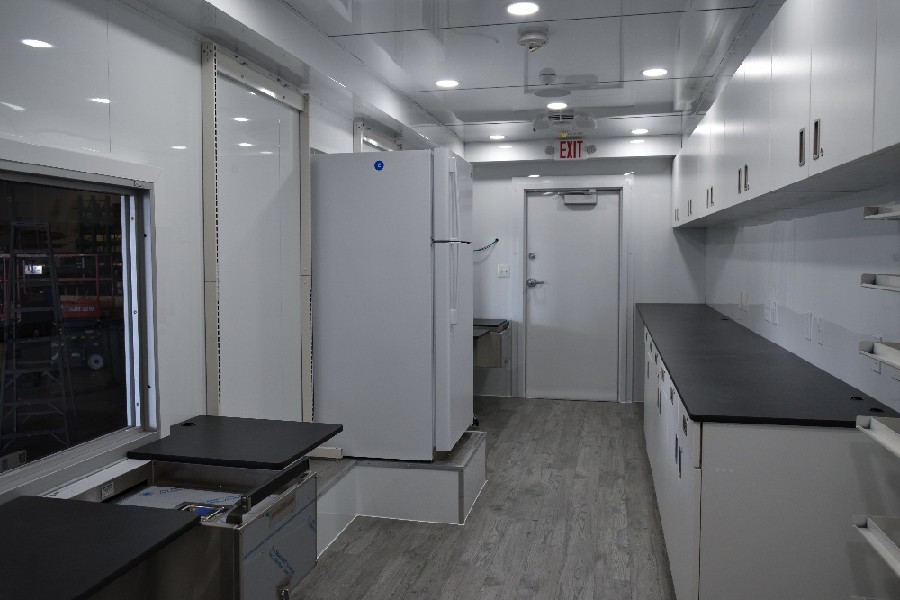
Mobile medical coaches are highly complex vehicles designed to bring healthcare services to underserved communities and reach adults and children living in remote areas. Due to the fact that medical coaches carry medical equipment and function as mobile clinics, they need to adhere to the medical coach regulations and safety standards.
Let’s get in-depth about the healthcare coach compliance guidelines.
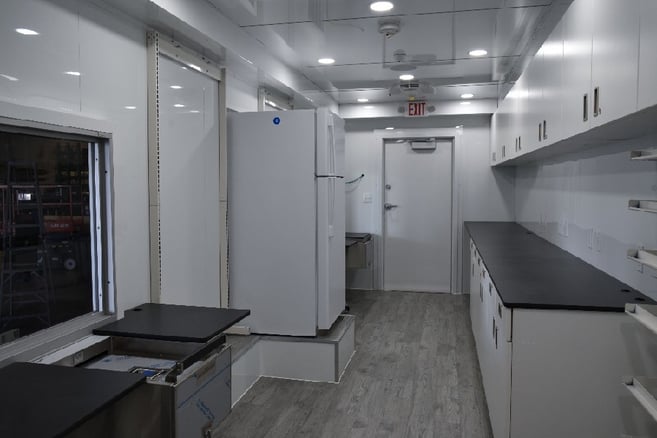
Source: craftsmenind.com
Due to medical vehicles' serious and professional practices, there are some regulations and safety standards mobile coaches should comply with.
But before we dive in-depth into the safety and regulations standards, it’s important to explain when mobile medical coaches are used and their particular purpose.
Medical coaches are different from emergency services, but they can also be used in humanitarian settings to bring potential life-saving healthcare to patients affected by any pandemic or natural disaster.
The staff operates with medical equipment within the mobile coaches to deliver proper and safe healthcare assistance. Mobile vehicles can benefit elderly patients or those living in underserved areas to have easier access to medical care.
Now, let’s get to the more important part!
Medical coaches are larger than vans. The national standard of driving these vehicles requires the appropriate skills and knowledge needed as attributes to make a safe and responsible driver of mobile medical coaches.
Medical coach drivers must be fully competent to drive them and have developed enough understanding to maintain their driving competence. They must also be provided full training and guidance to operate the vehicles.
Medical coaches must adhere to safety standards for vehicles. These include regulations related to vehicle maintenance, safety inspections, and insurance.
State and federal laws determine medical staff license requirements. The same rules apply to volunteers. A nurse practitioner has full practice capabilities in some states. But in other states, they must be accompanied by a doctor regarding mobile medical coaches.
Nurses working in mobile medical coaches must be professionally trained and qualified to offer medical assistance.
State laws also determine staff qualifications and whether they are the appropriate candidates to be recruited. Every volunteer sent to a mobile clinic operating in a vehicle must have the necessary credentials and practice knowledge in their field.
Mobile medical coaches may have many staff positions. These include drivers, safety officers, doctors, nurses, clinicians, volunteers, and medical students. Properly trained and qualified staff is often given the responsibilities of tracking supplies and coordinating patient care.
Medical coach nurses keep patient records and reports to determine what type of treatment they need. Documentation requirements might also be imposed on mobile medical units to track possible outcomes based on the collected relevant data.
Mobile medical units of many kinds are particularly required by law to abide by HIPAA. This federal law exists to help modernize the healthcare system but also to protect patient privacy information.
The staff and owner of mobile medical coaches should follow all patient privacy regulations. They usually collect the medical records of patients, and those kinds of information must never be made public due to patient-provider confidentiality.
Mobile medical units are expected to properly handle equipment and drug storage by meeting specific standards. They must ensure the medical devices are regularly maintained and adhere to the regulatory requirements.
For mobile medical coaches to operate effectively, they require proper management of the needed medication. This is to eliminate the potential risk of harm due to improper handling and storage of medications within the vehicle.
Medical staff working in the mobile coaches must keep records for each medication delivery. Specifically, they should pay close attention to each delivered drug's quality, quantity, and expiry date.
Also, they must properly label them and store each drug in containers to retain the quality and maintain the integrity of the medications by protecting them from external influences. The full names of all medications must be written instead of unauthorized abbreviations or codes.
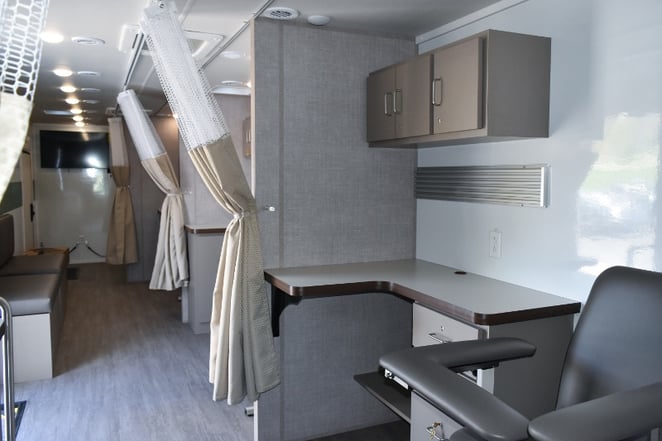
Source: craftsmenind.com
Mobile medical coaches must be located on a solid surface to prevent instability of the vehicle or interference with emergency exits of adjacent buildings. The location of the mobile coaches must comply with established local environmental laws and regulations.
Mobile medical coaches also need to be located in close proximity to the physical location they operate. This way, they not only help people in underserved locations but also can provide easy access to people living nearby.
Medical coaches are required to follow accessibility regulations. This is to allow individuals with disabilities easy access to the coach to receive the necessary care within the medical unit.
Mobile medical coaches must have stairs and ramps and should comply with the disability guidelines. Handrails are also great for providing safety and comfort for disabled patients. Mobile units must also have bed/chair clearances and a specific area for equipment storage.
Medical coaches are typically required to obtain registration certifications to operate legally. Local health departments, state or provincial agencies, and similar relevant authorities must issue these certificates.
Any healthcare service, including mobile medical coaches, should obtain certifications depending on the state’s requirements before applying for registration.
Mobile healthcare units are not required to carry specialized equipment for emergency care. Large machines cannot fit into the medical coaches, and they have only a minimal equipment set needed for quick medical assistance.
They must include a waiting area, a bed, and a chair for doctors or nurses. Also, it’s best for mobile healthcare coaches to have hand washing stations for healthcare professionals to have the ability to work in a clean setting.
Some minor surgical equipment is included in medical coaches in addition to medications and safety sharps boxes. They may also have tools for blood collection, dental equipment, etc. Other types of mobile medical coaches include PET/CT, MRI, and X-ray machines.
The type of equipment each medical coach carries can be customized based on the services they provide. They can be tailored to mobile primary care clinics, dental services, health screening, blood clinics, and mobile laboratories.
Reputable manufacturers of mobile healthcare units provide air conditioning. This is to ensure the medical coach is dry and well-ventilated according to relevant codes, health standards, and safety regulations.
Mobile medical units must maintain strict infection control protocols to prevent the spread of diseases within the medical coach. This includes the proper disposal of waste, using personal protective equipment, and implementing sanitation measures.
The surfaces and equipment of the mobile medical coach must be regularly cleaned to prevent hazards for patients and the staff. The floor shouldn’t be slippery to avoid unwanted accidents within the unit.
Ambulances require state-specific rules and regulations to operate legally and safely. They need lights, sirens, power requirements, and first aid. Their safety standards are different from those of medical coaches. Here is how they differ:
Unlike mobile medical coaches, ambulances in certain areas must follow certain national fire protection standards. They must also undergo several tests on patient structural integrity and obtain a specialized license.
Operating a mobile medical coach is less time-consuming and complicated than an ambulance. You don’t need any license for a medical coach because there are no specialized equipment requirements or emergency care with these types of services.
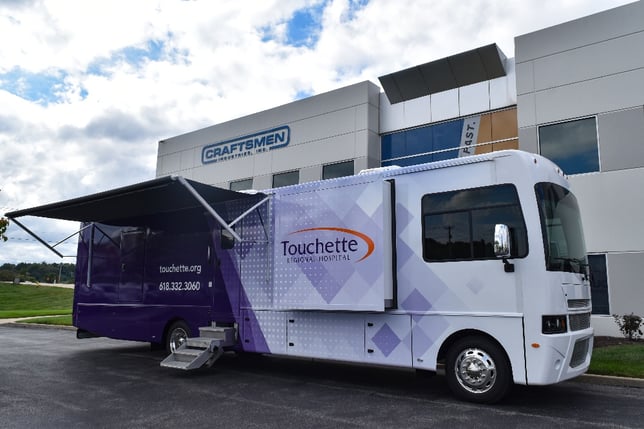
Source: craftsmenind.com
Healthcare coach regulations are developed to protect and ensure the well-being of patients and the staff. They help maintain quality control, prevent the spread of diseases, and protect against potential harm from medical treatments.
Healthcare workers keep medication and equipment protected in specific areas within the medical coach. Thus, some security measures must be considered to ensure the prevention of theft and damage. This includes CCTV to cover the entrance, installing appropriate locking systems, and impact-resistant safety window glass.
The price range of mobile medical coaches can depend on several factors. These include vehicle modifications, staff numbers, installation of special equipment, and upkeep costs. But the average cost of mobile medical coaches is between $100,000 to $500,000.
Although mobile medical coaches are growing in popularity, staff and patient safety might be neglected in the process. Thus, we presented the most important medical coach regulations and safety standards you must know before you decide to operate one.
All healthcare organizations require a systematic approach to maintain and improve the quality of their services. Medical coaches should not be an exception.
The safety of the medical staff practices can determine the effectiveness of mobile medical coaches. This way, patients gain trust and security in the service, thus eliminating the fear of unsanitary equipment and improper handling of storage supplies.
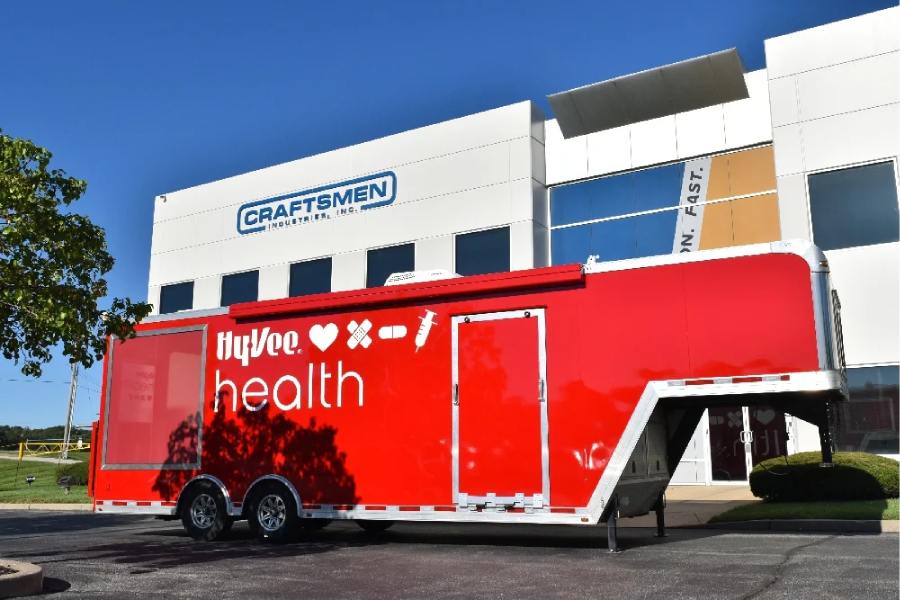
All medical facilities must adhere to government safety regulations. If your healthcare facility is considering expanding its services, you might...
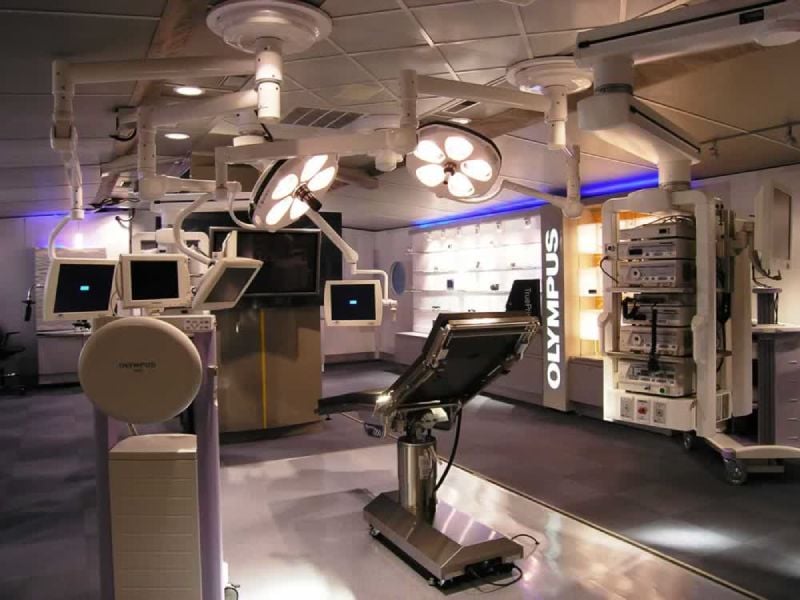
Crowded hospitals and long waiting lists make it difficult for many people to access medical care on time. It also prevents healthcare professionals...
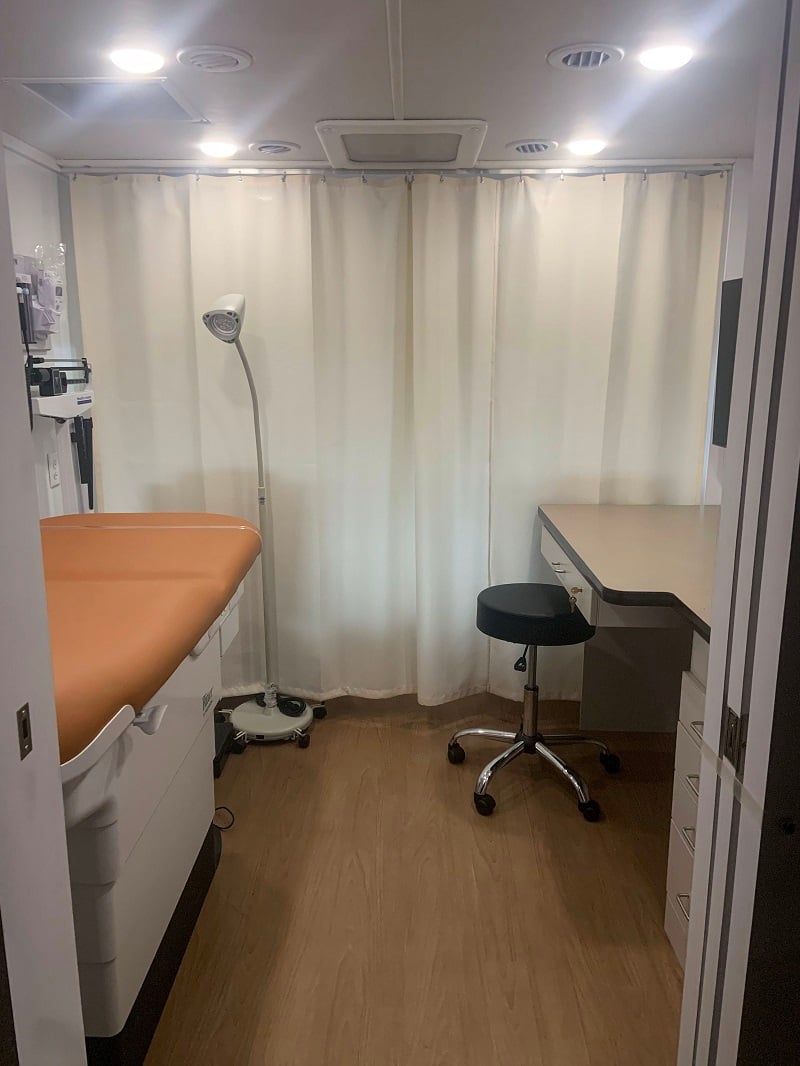
Mobile medical vehicles fill gaps in healthcare in the United States and many places throughout the world. Medical vehicles are typically large...